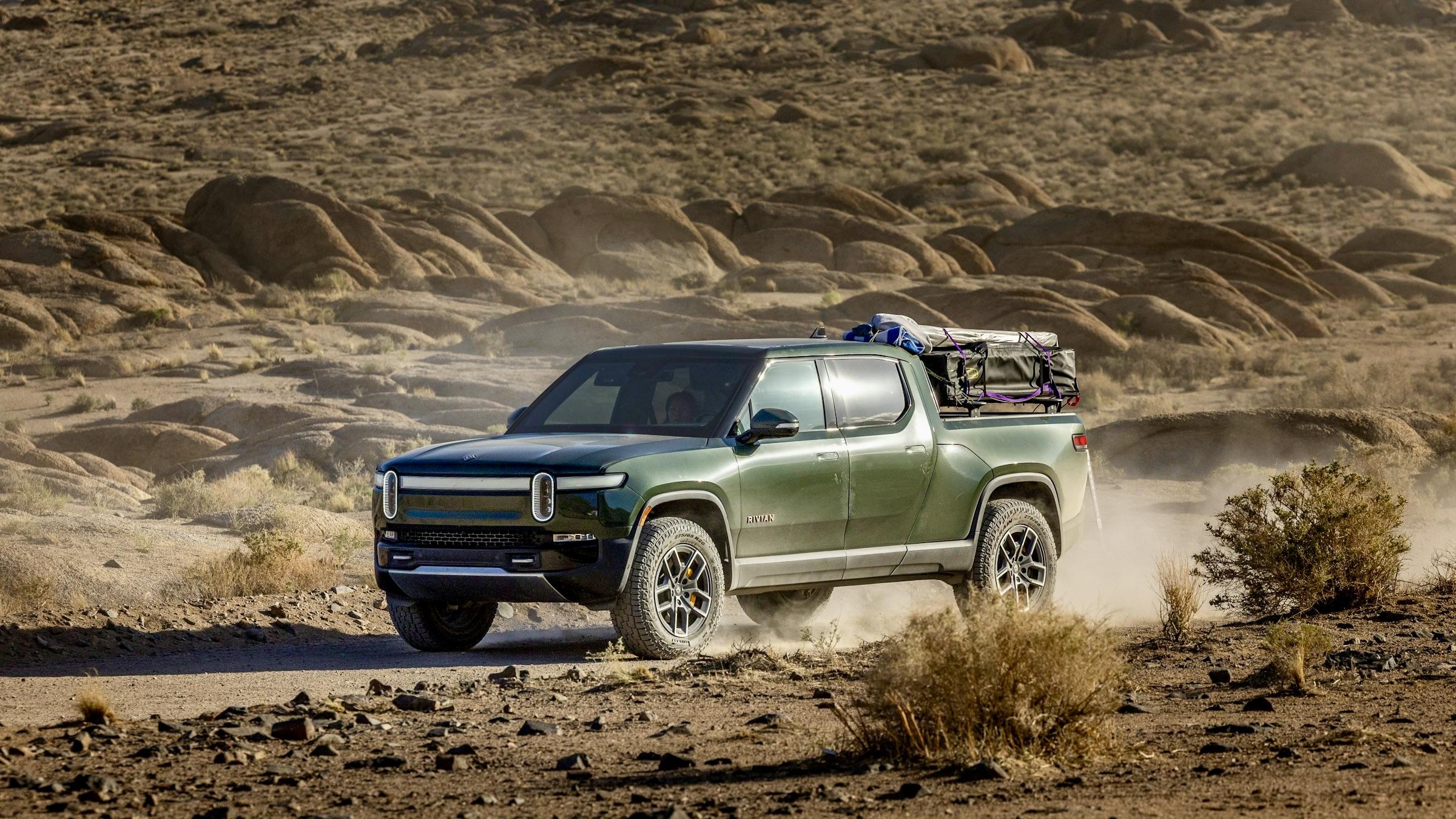RJ Scaringe, Rivian’s CEO, shared how a deliberate decision to reject Tesla's roadmap helped define Rivian's unique path, aiming to disrupt the electric vehicle industry with a fresh perspective on sustainability.
Scaringe Rejects Tesla's Proven Strategy
In a recent podcast interview, Scaringe revealed the one thing he did to keep from following Tesla's path.
It is critical to understand Tesla's founding story. To cater to the well-heeled, it manufactured the Roadster and set its price at a hefty $250,000. Essentially, this funding would go toward future vehicle developments, such as the Model S and Model X, which in turn would pave the way for the Model 3 and Model Y.
Tesla’s Strategy During Financial Struggles
It was the tactic that helped the company get through some bad financial times, as Teslarati explains.
Although it was a fantastic approach to acquire cash, Scaringe made a "very intentional" move to avoid it, which he detailed on the Grit Podcast, where he participated earlier this week.
Rivian CEO Praises Tesla's Leadership
To describe Tesla, Scaringe used the words "very inspirational." He praised the firm for its leadership and electric vehicle (EV) superpower capabilities. But he was also aware of how critical it was to paint a different picture for his business. There is more than one way to achieve success, like Tesla's:
“…a logical place to start is build a sports car, use it to build the brand, then following the sports car, follow with more mass market vehicles, and that was, of course, how Tesla’s strategy played out, and it worked, you know, wonderfully, well for them. You know, we were starting in a similar logic space to say, ‘build a sports car,’ and I realized somebody’s done that already, and they’ve done it well, with Tesla. So to pivot to a completely different type of product, you know, experience, vehicle topology, was a very intentional effort to also create a new story for not only us as a company or as a brand but, importantly, help shift mindsets around what sustainable transportation can look like.”
It's reasonable to assume that this perspective is highly respectful. Though it would have been challenging to implement, Scaringe's desire for Rivian to follow a separate route, have a unique story to tell, and face its own challenges is admirable.
Listen to the podcast here:



 Greg Abel’s First Berkshire Hathaway Shareholder Letter Signals Continuity, Caution, and Capital Discipline
Greg Abel’s First Berkshire Hathaway Shareholder Letter Signals Continuity, Caution, and Capital Discipline  Lynas Rare Earths Shares Surge on Strong Half-Year Earnings and Rising Global Demand
Lynas Rare Earths Shares Surge on Strong Half-Year Earnings and Rising Global Demand  Meta Encryption Plan Sparks Child Safety Concerns Amid New Mexico Lawsuit
Meta Encryption Plan Sparks Child Safety Concerns Amid New Mexico Lawsuit  Trump Orders Federal Agencies to Halt Use of Anthropic AI Technology
Trump Orders Federal Agencies to Halt Use of Anthropic AI Technology  Flare, Xaman Roll Out One-Click DeFi Vault for XRP Yield via XRPL Wallets
Flare, Xaman Roll Out One-Click DeFi Vault for XRP Yield via XRPL Wallets  Synopsys Q2 Revenue Forecast Misses Expectations Amid China Export Curbs and AI Shift
Synopsys Q2 Revenue Forecast Misses Expectations Amid China Export Curbs and AI Shift  Federal Judge Blocks Virginia Social Media Age Verification Law Over First Amendment Concerns
Federal Judge Blocks Virginia Social Media Age Verification Law Over First Amendment Concerns  FCC Approves Charter Communications’ $34.5 Billion Acquisition of Cox Communications
FCC Approves Charter Communications’ $34.5 Billion Acquisition of Cox Communications  Snowflake Forecasts Strong Fiscal 2027 Revenue Growth as Enterprise AI Demand Surges
Snowflake Forecasts Strong Fiscal 2027 Revenue Growth as Enterprise AI Demand Surges  Paramount Skydance to Acquire Warner Bros Discovery in $110 Billion Media Mega-Deal
Paramount Skydance to Acquire Warner Bros Discovery in $110 Billion Media Mega-Deal  Nvidia Earnings Beat Expectations as AI Demand Surges, Stock Rises on Strong Revenue Outlook
Nvidia Earnings Beat Expectations as AI Demand Surges, Stock Rises on Strong Revenue Outlook  OpenAI Faces Scrutiny After Banning ChatGPT Account of Tumbler Ridge Shooting Suspect
OpenAI Faces Scrutiny After Banning ChatGPT Account of Tumbler Ridge Shooting Suspect  Netflix Declines to Raise Bid for Warner Bros. Discovery Amid Competing Paramount Skydance Offer
Netflix Declines to Raise Bid for Warner Bros. Discovery Amid Competing Paramount Skydance Offer  Toyota Plans $19 Billion Share Sale in Major Corporate Governance Reform Move
Toyota Plans $19 Billion Share Sale in Major Corporate Governance Reform Move  Hyundai Motor Group to Invest $6.26 Billion in AI Data Center, Robotics and Renewable Energy Projects in South Korea
Hyundai Motor Group to Invest $6.26 Billion in AI Data Center, Robotics and Renewable Energy Projects in South Korea  FedEx Faces Class Action Lawsuit Over Tariff Refunds After Supreme Court Ruling
FedEx Faces Class Action Lawsuit Over Tariff Refunds After Supreme Court Ruling  Apple to Begin Mac Mini Production in Texas Amid $600 Billion U.S. Investment Plan
Apple to Begin Mac Mini Production in Texas Amid $600 Billion U.S. Investment Plan 































